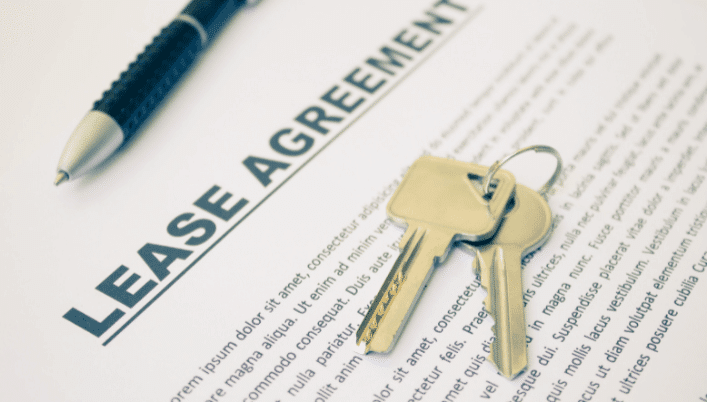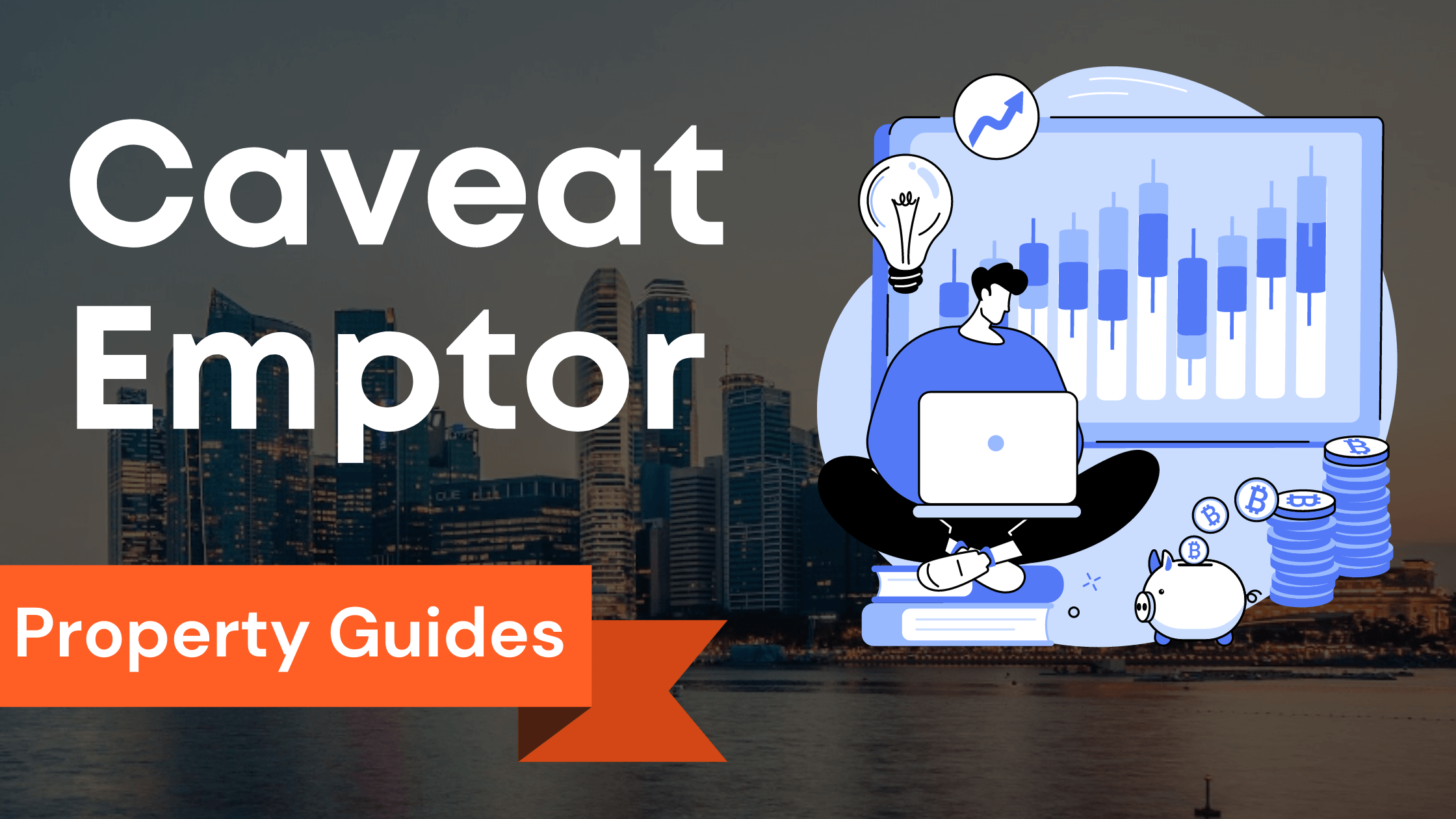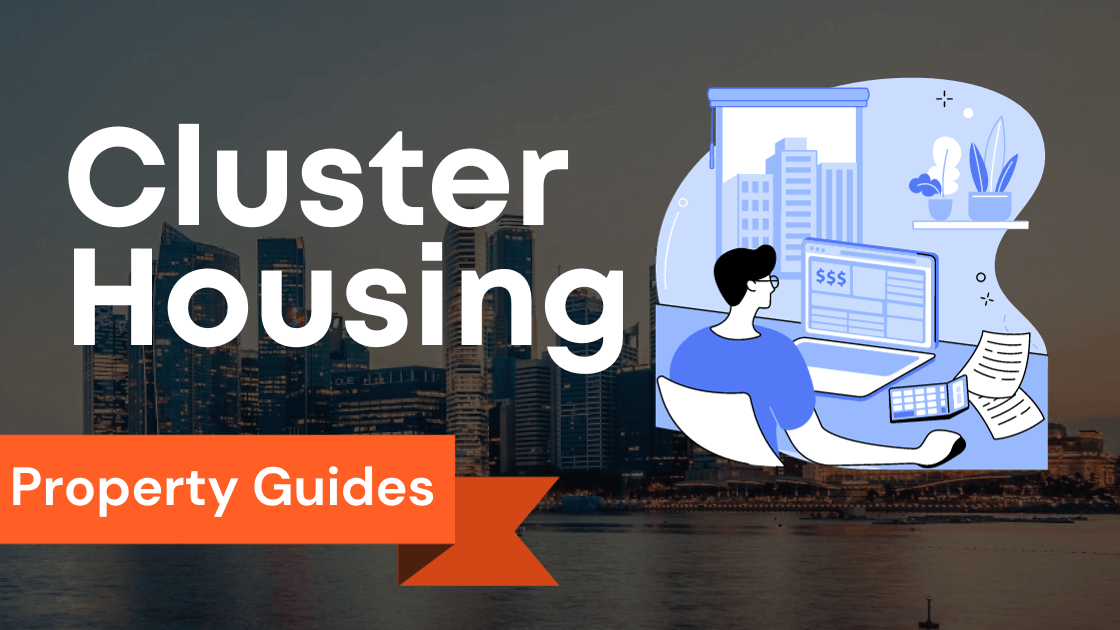
What is a Commercial Lease Agreement?
A commercial lease agreement is a legally binding contract between a property owner (the landlord) and a business (the tenant) for the rental of a commercial property in Singapore.
It outlines the terms and conditions of the lease, including the lease period, rental amount, responsibilities of both parties and any additional clauses.
Definition of a Commercial Lease Agreement
A commercial lease agreement is a contract that defines the terms of the lease between the landlord and the tenant.
It specifies the lease terms, common terms, agreement terms, and the responsibilities of each party.
The lease term is the duration of the lease, which can range from a few months to several years.
There are also common terms, such as the rent payable, security deposit, and any additional expenses.
Types of Commercial Lease Agreements
There are several types of commercial lease agreements, each with its own set of terms and conditions.
The most common types include:
- Gross Lease: The tenant pays a fixed rent amount, and the landlord is responsible for all operating expenses, including utilities and maintenance.
- Net Lease: The tenant pays the rent plus a portion of the operational expenses, such as property taxes, insurance, and maintenance.
- Modified Gross Lease: This lease is a combination of gross and net leases.
- The tenant and landlord negotiate which expenses are included in the rent and which are the tenant’s responsibility.
- Absolute NNN Lease: The tenant is responsible for all operating costs, including property taxes, insurance, maintenance, and utilities.
Key Elements of a Commercial Lease Agreement
A commercial lease agreement includes several key elements that protect both the landlord and the tenant.
These elements are:
- Lease Duration: The length of the lease, which can be a fixed-term lease or a month-to-month lease.
- Security Deposit: A refundable amount of money paid by the tenant to the landlord to cover any damages or unpaid rent at the end of the lease.
- Rent Payable: The amount of rent the tenant agrees to pay, usually on a monthly basis.
- Additional Rent: Any additional payments required by the tenant, such as common area maintenance fees or property taxes.
- Additional Expenses: Any additional expenses that the tenant is responsible for, such as utilities, insurance, or repairs.
In conclusion, a commercial lease agreement is a crucial document when renting a commercial property in Singapore.
It defines the rights and obligations of both the landlord and the tenant and ensures a smooth and mutually beneficial business relationship.
It is essential for both parties to carefully review and understand the key terms and conditions outlined in the lease agreement before signing.
Key Takeaways
- Definition of Commercial Lease Agreement: A commercial lease agreement is a legally binding contract between a property owner (landlord) and a business (tenant) for renting commercial property in Singapore. It outlines lease terms, rental amounts, responsibilities, and additional clauses.
- Types of Commercial Lease Agreements: There are various types of commercial leases, including Gross Lease, Net Lease, Modified Gross Lease, and Absolute NNN Lease, each with its own terms and expense responsibilities.
- Key Elements in Commercial Lease Agreement: Important elements include lease duration, security deposit, rent payable, additional rent, and additional expenses.
- Commercial Lease Terms: Understand common lease terms like total rent, base rent, additional rent, common areas, common area maintenance (CAM), rent payments, maintenance fees, and cost per square foot.
- Important Lease Terms for Tenants: Tenants should consider aspects like tenant responsibilities, lease terms, public liability insurance, property damage, rent security deposit, and stamp duty payable.
- Important Lease Terms for Landlords: Landlords should be aware of gross rent, property tax, the legally binding nature of the lease, and additional costs they may pass on to tenants.
- Commercial Lease Trends in Singapore: The market is competitive, with rental appreciation. Institutional investors show interest due to Singapore’s stability.
- Choosing a Commercial Lease: Factors to consider include lease terms, landlords, location, size and layout, costs, and budget.
- Tips for Negotiating a Commercial Lease (Tenants): Understand responsibilities, personal guarantees, rental terms, shopping center clauses, and consider green leases.
- Tips for Negotiating a Commercial Lease (Landlords): Consider rental income, property management fees, maintenance costs, and service charges.
- Common Commercial Lease Disputes: Address potential disputes related to termination, lease duration, maintenance costs, and natural disasters in the lease agreement.
Commercial Lease Terms in Singapore

When it comes to commercial leases in Singapore, understanding the key terms and provisions is essential for both tenants and landlords.
Whether you are a business owner looking for a commercial space or a property owner renting out your premises, it’s crucial to be aware of the commonly used commercial lease terms.
Common Commercial Lease Terms
Total Rent: The total rent is the sum of the base rent and any additional rent, such as common area maintenance fees or utility charges.
Base Rent: The base rent is the fixed amount that the tenant pays to the landlord for the use of the commercial premises.
Additional Rent: Additional rent refers to any costs beyond the base rent that tenants are responsible for paying, such as common area maintenance fees or other operating expenses.
Common Areas: Common areas are spaces within the commercial property that are used by multiple tenants or shared with the public, such as hallways, lobbies, or parking lots.
Common Area Maintenance (CAM): CAM expenses are the costs associated with maintaining and operating the common areas, including cleaning, security, landscaping, and repairs.
Rent Payments: The terms of rent payments, such as the due date, frequency, and acceptable methods of payment, are outlined in the lease agreement.
Maintenance Fees: Maintenance fees are charges paid by tenants to cover the costs of maintaining the commercial premises, including repairs and upkeep.
Cost of Rent: The cost of rent is typically calculated on a per-square-foot basis, taking into account the size and location of the commercial space.
Important Commercial Lease Terms for Tenants
Tenant: The tenant refers to the individual or business entity that rents the commercial space from the landlord.
Terms of the Lease: The duration of the lease includes the length of the lease, renewal options, and any additional clauses or provisions that govern the tenant’s rights and responsibilities.
Public Liability Insurance: Public liability insurance is a type of coverage that protects tenants from legal claims or damages caused to third parties on the premises.
Property Damage: The lease should specify who is responsible for any damages caused to the commercial space during the tenancy period.
Rent Security Deposit: Tenants are typically required to provide a security deposit to the landlord as a form of financial security for any potential damages or unpaid rent.
Stamp Duty Payable: Stamp duty is a tax imposed on certain legal documents, including commercial leases.
The responsibility for paying stamp duty may lie with either the tenant or the landlord, depending on the agreed terms.
Important Commercial Lease Terms for Landlords
Landlord: The landlord is the property owner who leases out the commercial space to the tenant.
Gross Rent: Gross rent is the total amount of rent paid by tenants, including base rent and any additional costs such as property taxes or insurance.
Property Tax: Property tax is a local tax imposed on the value of the property, and landlords are typically responsible for paying this expense.
Legally Binding: A commercial lease is a legally binding contract between the landlord and the tenant, and both parties are obligated to fulfill the terms and conditions outlined in the lease agreement.
Additional Costs: In addition to rent, landlords may pass on other expenses to tenants, such as maintenance fees, utilities, or insurance premiums.
Understanding these critical commercial lease terms will help both tenants and landlords navigate the leasing process with greater confidence and clarity.
Both parties need to review and negotiate the terms of the lease agreement to ensure a mutually beneficial relationship throughout the tenancy period.
Types of Commercial Leases in Singapore

Gross Leases
A gross lease is a type of commercial lease where the tenant pays a fixed amount of rent, and the landlord is responsible for all operating expenses associated with the property.
This includes maintenance costs, real estate taxes, and insurance.
Gross leases are commonly used for office buildings.
Under a gross lease, the rent payable remains constant throughout the lease term, providing businesses with predictable monthly expenses.
This type of lease is beneficial for tenants as they don’t have to worry about additional costs and can focus on running their business.
However, tenants need to consider the real estate market and understand the potential impact on their lease terms.
Net Leases
A net lease is a type of commercial lease where the tenant is responsible for paying not only the base rent but also a portion of the operating expenses.
These operational expenses typically include property taxes, insurance, and maintenance costs.
Net leases can be further classified as single, double, or triple net leases, depending on the extent of the expenses passed on to the tenant.
Business owners opting for a net lease should carefully review the lease terms and understand their financial obligations.
It’s essential to conduct due diligence on the property and negotiate lease terms that best suit their business needs.
Additionally, tenants should consider additional expenses, such as property tax increases during the lease term.
Modified Gross Leases
A modified gross lease combines elements of both gross and net leases.
In this type of lease, the business rents a commercial property, and the landlord agrees to cover some of the operating expenses while the tenant is responsible for others.
The specific terms of a modified gross lease are subject to negotiation between the parties involved.
However, unless the landlord has given a particular allowance, tenants may still need to pay for additional expenses such as utilities, maintenance, or property management fees.
Tenants need to clarify the scope of their financial responsibilities and understand the property management arrangement.
By understanding the different types of commercial leases in Singapore, business owners can make informed decisions when it comes to renting a commercial space.
Whether opting for a gross lease, net lease, or modified gross lease, it is essential to carefully review the lease terms and consider the financial implications for the business.
Commercial Real Estate in Singapore

If you are looking to lease commercial real estate in Singapore, you are entering a competitive and dynamic market.
It is essential to have a good understanding of the prevailing market conditions, lease rates, and trends to secure the best deal for your business.
Here are some key points to keep in mind:
Commercial Lease Rates in Singapore
When it comes to commercial lease rates in Singapore, the average annual rent can vary depending on factors such as location, property type, size, and lease duration.
It is crucial to do thorough research and compare the lease rates of similar properties to ensure you are getting the best deal.
To negotiate the terms effectively, it is essential to understand the rent structure.
Some leases may have a fixed annual market rent, while others may have rent subject to review or escalation clauses.
Additionally, you should be clear on the rent payment terms, including any required deposits or advance payments.
Commercial Lease Trends in Singapore
The commercial lease market in Singapore is constantly evolving, influenced by factors such as supply and demand, economic conditions, and investor sentiment.
Staying updated on the latest lease trends can help you make informed decisions.
Currently, Singapore’s real estate market is experiencing a high demand for commercial properties, leading to rental appreciation for investors.
Institutional investors are showing interest in the market due to the stability and guarantee of title that Singapore offers.
Factors to Consider When Choosing a Commercial Lease
Choosing the right commercial lease is a critical decision for your business.
Here are some factors to consider:
- Lease terms and duration: A lease is an important legal agreement, so it is essential to review and negotiate the terms carefully. Ensure that the lease duration aligns with your business plans and provides flexibility if needed.
- Commercial landlords: Research the reputation and track record of potential landlords. A reliable and responsive landlord can make a significant difference in your leasing experience.
- Location and accessibility: Consider the proximity to your target market, transportation links, amenities, and the overall convenience of the site for your business operations.
- Size and layout: Assess the suitability of the space for your business needs, including the design, infrastructure, and potential for expansion or customization.
- Costs and budget: Evaluate the total cost of the lease, including rent, utilities, maintenance fees, taxes, and any additional charges. Ensure it fits within your budget and cash flow projections.
By carefully considering these factors and working closely with a reputable real estate agent or lawyer, you can secure a commercial lease that suits your business requirements and sets you up for success in Singapore’s bustling business landscape.
Tips for Negotiating a Commercial Lease in Singapore

Tips for Tenants
When negotiating a commercial lease in Singapore, there are several vital factors tenants should keep in mind.
- Responsibilities: Understand that the tenant is usually responsible for the maintenance and repairs of the premises, so it’s essential to clarify these obligations in the lease agreement.
- Personal Guarantee: Landlords often require a personal guarantee from the tenant, which means that if the business fails to pay rent or breaches the lease, the tenant will be personally liable.
- Rental Terms: Carefully review the rental terms, including any escalations or rental increases throughout the lease, to ensure they align with your budget and business plans.
- Shopping Centers: If leasing a space in a shopping center, consider the impact of any exclusive clauses that restrict the tenant from operating a similar business to another tenant in the same complex.
- Green Leases: Consider opting for a green lease, which promotes energy-efficient practices in the building and may provide cost-saving benefits for your business.
Tips for Landlords
Landlords also play a crucial role in negotiating a commercial lease.
Here are some tips for landlords looking to secure the best deal:
- Written Consent: Ensure that any alterations or modifications to the property by the tenant require written consent to protect the landlord’s property rights.
- Rental Income: Determine the rental income you expect to generate from the property and analyze its return on investment (ROI) when negotiating lease terms.
- Property Management Fees: Clarify whether the tenant or the landlord will be responsible for property management fees, including maintenance and repairs.
- Maintenance Charge: Specify who will bear the cost of major maintenance and repairs, as these expenses can significantly impact the landlord’s profitability.
- Service Charge: Consider including a service charge clause to cover the costs of shared services, utilities, and common area maintenance in the building.
Common Commercial Lease Disputes
Commercial lease disputes can arise between landlords and tenants due to various issues.
Here are some common conflicts and how to address them:
- Termination: Clearly define the terms for termination or renewal of the lease agreement to avoid misunderstandings and disputes.
- Lease Duration: Establish a mutually agreed-upon lease duration, including any options for renewals or extensions, to prevent disputes over the lease’s length.
- Maintenance Costs: Clearly outline the responsibility for maintenance costs, including repairs and renovation, to avoid disagreements later.
- Natural Disasters: Consider including provisions in the lease agreement regarding the tenant’s responsibilities and obligations in the event of natural disasters or unforeseen circumstances.
Whether you are a tenant or a landlord, negotiations for a commercial lease in Singapore require careful consideration of all terms, responsibilities, and potential disputes.
Seeking legal advice and conducting thorough research can help ensure a successful and mutually beneficial lease agreement.
Conclusion
Commercial Leases Singapore: Key Considerations for a Successful Lease Agreement
In conclusion, signing a commercial lease agreement in Singapore requires careful consideration of the terms and conditions.
Whether you are a landlord or a tenant, understanding the intricacies of the lease agreement is essential to protect your rights and interests.
Here are some key points to remember:
- Terms of the Commercial Lease: Before signing a lease agreement, both parties should thoroughly review and negotiate the terms, including the duration of the lease, the option to renew, and any specific clauses related to the business’s needs.
- Legal Obligations: Landlords and tenants should be aware of their legal obligations under the lease agreement. This includes responsibilities for maintenance, repairs, and compliance with local regulations.
- Insurance and Liability: Both parties need to have public liability insurance to cover any potential accidents or injuries that may occur on the premises during the lease period. Review the lease carefully to ensure that the appropriate insurance requirements are outlined.
- Renewal and Termination: The lease agreement should clearly outline the process for renewal or termination. This includes any notice periods, conditions for termination, and procedures for returning the rented premises to the landlord.
- Commercial vs. Residential Leases: Commercial leases differ significantly from residential leases. Understanding the specific provisions and considerations for commercial leases is crucial to protect your investment or business.
- Consult Professionals: It is highly recommended to consult with legal professionals or real estate agents who specialize in commercial leases to ensure that the lease agreement is legally sound and favorable to your interests.
Remember, a commercial lease agreement is a binding contract that can have long-term implications for both the landlord and the tenant.
Taking the time to review and negotiate the terms carefully can minimize potential disputes and ensure a successful and mutually beneficial lease agreement.
In summary, signing a commercial lease in Singapore requires careful consideration of various factors, including the lease terms, legal obligations, insurance coverage, renewal and termination provisions, and understanding the differences between commercial and residential leases.
Seeking professional advice can help you navigate the complexities and protect your interests throughout the lease.
Frequently Asked Questions
What is a commercial lease?
A commercial lease is a legal agreement between a landlord and a business tenant outlining the terms and conditions for renting a retail property for business purposes.
How does a common commercial lease differ from a residential lease?
While both commercial and residential leases involve renting property, commercial leases are specifically designed for business purposes and usually have different terms and conditions compared to residential leases.
What should I know before signing a commercial lease?
Before signing a commercial lease, it is essential to thoroughly review and understand the terms and conditions, including the lease duration, rent amount, standard terms, and any additional fees or responsibilities.
How long is a typical commercial lease?
The length of a commercial lease can vary, but it is typically longer than a residential lease.
It can range from a few years to several decades, depending on the agreement between the landlord and tenant.
What are some common terms included in a commercial lease?
Common terms found in a commercial lease may include the rent amount, lease duration, maintenance responsibilities, utilities, insurance requirements, lease renewal options, and provisions for terminating the lease.
Can I negotiate the agreement terms of a commercial lease?
Yes, it is possible to negotiate specific terms of a commercial lease.
However, the extent of negotiation may vary depending on the landlord’s policies and the demand for the commercial space.
What happens if I need to terminate the lease before the agreed-upon duration?
Terminating a commercial lease before the agreed-upon duration can have financial and legal consequences.
It is essential to review the specific termination clauses in the lease agreement and consult with legal advisors if necessary.
Can the size of the commercial space be adjusted during the lease term?
The size of the commercial space is usually defined and agreed upon in the lease agreement.
If changes are needed during the lease term, it typically requires negotiations with the landlord and a written amendment to the lease agreement.
What is an assignment of the lease?
An assignment of the lease occurs when the tenant transfers their lease to another party.
This can happen when a business is sold or when a tenant wants to sublet the premises to another company.
How does the length of a commercial lease affect the tenant?
The length of a commercial lease can affect the tenant’s stability, planning, and financial obligations.
Longer lease terms provide more certainty and potential for growth, while shorter lease terms offer flexibility and the ability to relocate or renegotiate sooner.












